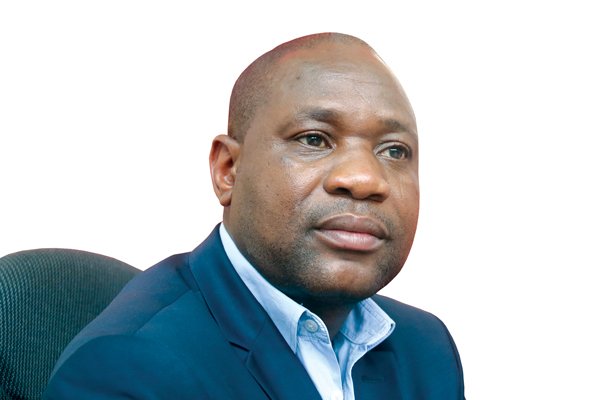Source: Military tutelage must end – The Zimbabwe Independent September 21, 2018
Dumisani Muleya
AS we report in our lead story in this edition, President Emmerson Mnangagwa is now making bold yet risky manoeuvres to contain his ambitious deputy Constantino Chiwenga, demilitarise politics and ensure the end of military tutelage in Zimbabwe in the aftermath of the recent general elections which gave him a semblance of political legitimacy, albeit in a hotly-disputed presidential poll.
Editor’s Memo,Dumisani Muleya
The issue is basically about the power struggle between Mnangagwa and Chiwenga. Mnangagwa is now moving to contain Chiwenga as the political matrix shifts, while the succession battle quietly intensifies behind-the-scenes.
This may change the course of history and Zimbabwe’s future, depending on how the fight eventually pans out. It is a manifestation of Zanu PF’s unresolved leadership issue.A new confidential government document spelling out the key performance indicators for newly-appointed cabinet ministers, exclusively obtained by the Zimbabwe Independent this week, reveals Mnangagwa is pushing hard to drive the military back to the barracks, depoliticise security forces and consolidate civilian control of the state and government, while coup-proofing himself.
This has created a new form of brinkmanship between the proverbial two bulls in one kraal, as it did between former president Robert Mugabe and Mnangagwa. How this will end is anybody’s guess, but so far Mnangagwa has daringly taken the fight to his rival. The ball is now in Chiwenga’s court.
Trying to end military tutelage is always a dangerous game. Of course, it has been done before elsewhere with different results depending on history, context and circumstances. There are volumes of political science literature concerning the demilitarisation of politics. The end of military tutelage in Turkey, for instance, was insightfully explained by Koray Caliskan, a well-known academic at Boğaziçi University, once arrested and detained for his work, through a combination of pull and push factors.
In a journal article, titled Explaining the end of military tutelage and the July 15 coup attempt in Turkey, Caliskan says pull factors in demilitarising politics are based on prevailing structural conditions and the political environment.
The article says some of the variables include the military’s integration into the economy; shifting international context and dynamics on the political role of the army; constitutional and legal roles of the military; and emergence of a counter political elite in the country.
These pull factors create an environment of political opportunity for anti-tutelage actors in civil and political society which could be decisive in demilitarisation of politics.
It is these actors who generate push factors: pursuing demilitarisation of politics without framing it as such; the emergence of an anti-tutelage hegemonic cluster in civil society, and the strategic moves of anti-tutelage military and civilian actors in the judicial and security bureaucracy.
These are the conditions Mnangagwa needs to redefine civil-military relations in Zimbabwe, and take back the country to a constitutional and legal path properly.
Instead of scrambling to legitimise the coup, now overtaken by the elections, the opposition, civil society, the judiciary and media, among other actors, must be helping Mnangagwa, a beneficiary of military political interference, to demilitirise Zimbabwean politics. Serious social forces and actors must help in this process.
Mnangagwa is under pressure from international actors, donors and funders to end military tutelage as part of reforms before getting funding and technical support to resuscitate the asphyxiated economy.
As part of that, Mnangagwa is taking a series of measures to ensure the military no longer assumes they have an acquired right or privilege to exercise effective control over civilian government, play a political role within the state apparatus, or even to structure relationships between the state, and political and civil society.
Under Mugabe, military handling moved from civilian control at the height of his power to tutelage, as it waned and then brinkmanship, which culminated in a military coup that dramatically ended his disastrous 37-year authoritarian rule.
Newer Post
After reflecting . . . Older Post
NetOne swings to profitability 
COMMENTS
My Opinion. By Nyoni
For years I have been writing on this platform expressing my views freely at a time the regime enacted all types of heinous acts to subvert the rule of law. Oppress the masses and pretend all was within their rights to do whatever they wanted . During these dark days the military enjoyed the relationship between government with even Mugabe saying the armed struggle was a symbiotic relationship between the military and the civilian side. This relationship would continue even after the amalgamation of all the warring sides into one national army .
The only problem was that many former combatants were confined to barracks and relied fully on the regime to assist their needs. This relationship was to become strained as the services felt used and more so realised albeit a bit late where the road was leading. The rest is history but we should all remember some years ago Chiwenga told his top officers to get degrees and this was well before the power struggle really began.
To now say Ed is trying to pacify the military would be saying a hungry shark will pass by a shoal of fish. The military want power and the return to barracks will be a difficult path for a civilian government . Is our present government civilian?. Were MDC to win the elections then yes it would have been. But in reality this would have never happened and we have seen so. Our quasi government is being ruled by the military but Ed , who knows it does not want to rock the boat at this uneasy time.